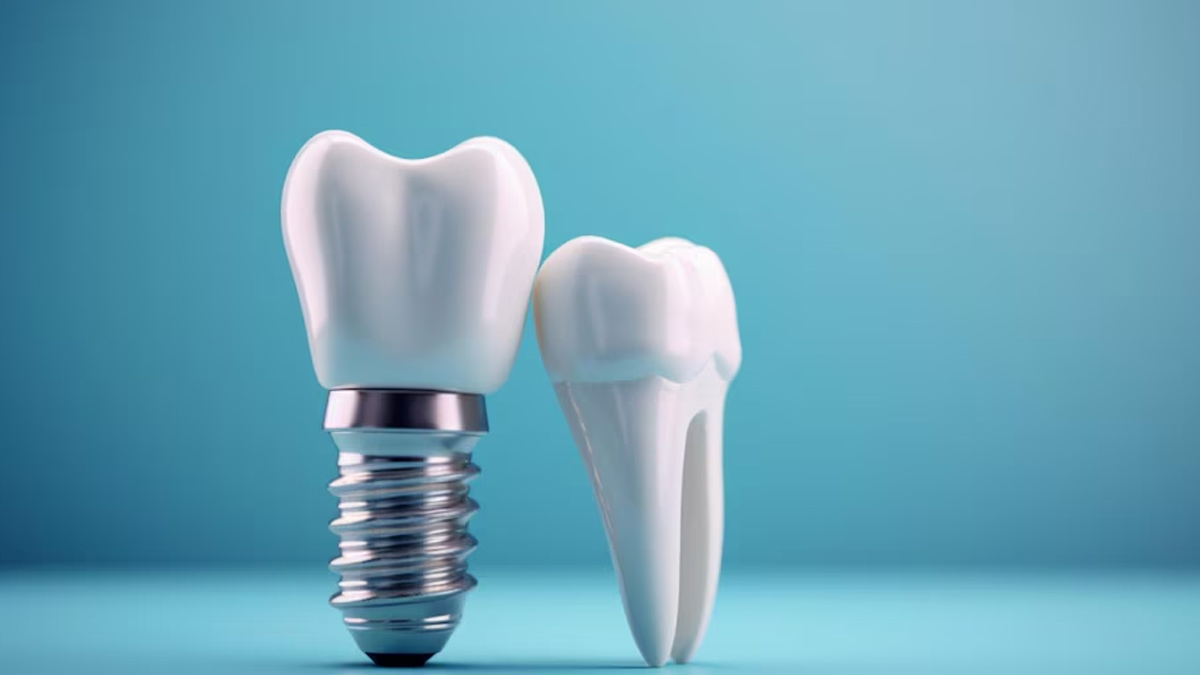
Have you ever wondered how long dental implants can last and what factors play a role in their durability? Dental implants go beyond merely replacing missing teeth; they are a long-term investment in oral health and well-being. Whether you’re considering implants or have them already, understanding what impacts their durability can help you make informed decisions for your dental health. We spoke to our expert Dr Kamlesh Kothari, Dental Implant Specialist, Cosmetic Dentist and Maxillofacial Surgeon, Kolkata, Founder and Clinical Director, Aesthetica, who shared insights on the same.
Table of Content:-
What Are Dental Implants?

Dental implants are titanium-based artificial roots placed into the jawbone to support new teeth or dental bridges. “They offer a durable and natural-looking solution for missing teeth, promoting better oral function and aesthetics. Implants integrate with the jawbone, providing stability and preventing bone loss, making them a preferred choice over traditional dentures and bridges,” said Dr Kothari.
Duration of Dental Implants

The goal of dental implants is to offer a durable and permanent solution for replacing lost teeth. Depending on how one takes care of them, they can last between 15-25 years or even more. According to a 2009 study, approximately 50-80% of crowns may require replacement within a 15 to 20-year period.
Dental implants are a proven option for replacing missing teeth, achieving a 97% success rate after 10 years and a 75% success rate after 20 years, as stated in the Journal of Oral Medicine and Oral Surgery (JOMOS).
Also Read: Oral Care: Expert Explains Crucial Role Of Regular Dental Checkups In Preserving Oral Health
Factors Impacting Durability
Oral Hygiene

Proper oral hygiene should be practised to maintain dental implant health. “Tooth brushing regularly plus flossing as well as regular dental cleanings help to prevent peri-implantitis, which is an inflammation around an implant area which if left untreated might cause loss of an implant,” said Dr Kothari.
Bone Quality
Sufficient bone density and quality are necessary for successful osseointegration when the implant bonds with the jawbone. When bone density is too low, it can weaken the stability of the implant and shorten its lifespan.
Health Conditions
A systemic health condition like diabetes or autoimmune disorders can disturb the recovery system of an individual’s body and may also affect the outcome of dental implantation. Therefore, individuals need to control these conditions in consultation with healthcare providers.

Smoking
“Healing and osseointegration processes are affected by smoking, which increases the chances of implant failure. Thus, patients who smoke should stop or cut their habits to ensure dental implants last longer,” added Dr Kothari.
Implant Maintenance
To monitor the health of implants and address any problems promptly, regular visits to the dentist are essential. Early signs of complications can be detected through X-rays and clinical examinations.
Also Read: Oral Care: Expert Explains Tooth Polishing And Tooth Whitening And Their Affect On Your Oral Health
Implant Design and Material
Implant technology has improved with its design and materials used. Success in long-term outcomes is possible through high-quality materials, such as titanium or ceramic implants in conjunction with advancements in surface treatments.
Dental Care Provider’s Expertise
The expertise of a restorative dentist and dental implant surgeon carries out significant roles in success rate and retention period. Proper planning, precise positioning as well as extensive postoperative care should be undertaken.
The Growing Popularity of Dental Implants in India
.jpg)
“In India, the prevalence of dental implants has been rising rapidly. This growth is driven by increasing awareness about oral health, the affordability of dental care compared to Western countries, and advancements in dental technology,” highlighted Dr Kothari. The growing middle-class population, with higher disposable incomes and a focus on quality of life, further fuels this trend.
Number of Dental Clinics Providing Implants
- Estimated Clinics: “There are over 50,000 dental clinics in India, with a substantial portion offering dental implant services. Major cities like Delhi, Mumbai, Bangalore, Chennai, and Hyderabad have a higher concentration of clinics with advanced implantology facilities,” said Dr Kothari.
- Urban Vs Rural Distribution: The majority of these clinics are located in urban areas due to better access to advanced technology and a higher patient base. However, semi-urban areas are increasingly seeing more clinics equipped to provide dental implants.
Number of Dental Implants Placed Per Year
Dr Kothari shared the estimated number of dental implants in the country as follows:
- Annual Placements: The number of dental implants in India annually is estimated to be between 3-5 lakhs. This figure is steadily increasing due to rising awareness, improved affordability, and advancements in dental implant technology.
- Growth Rate: The dental implant market in India is experiencing a compound annual growth rate (CAGR) of around 25-30%, reflecting the growing demand and acceptance of dental implants as a preferred solution for missing teeth.
[Disclaimer: This article contains information provided by an expert and is for informational purposes only. Hence, we advise you to consult your own professional if you are dealing with any health issues to avoid complications.]
Also watch this video
Read Next
World Plastic Surgery Day: Doctor Explains How Botox Can Help Treat Excessive Underarm Sweating
How we keep this article up to date:
We work with experts and keep a close eye on the latest in health and wellness. Whenever there is a new research or helpful information, we update our articles with accurate and useful advice.
Current Version